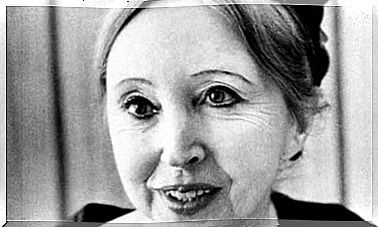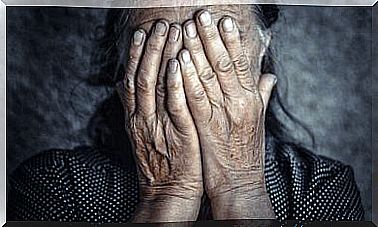Hostility In A Relationship: The Prelude To The End

Hostility is an attitude of contempt towards one or more people with a conscious intention to harm. This intention can be noticed in different ways: covertly, in the form of gossip and slander, or more explicitly, through verbal or physical attacks.
Hostility is an unpleasant emotional experience, because it does not arise from a situation of opposition, war or competition. It is a feeling that is addressed to our sentimental partner, our friend or our brother, to a person who is part of our “field of peace”.

Hostility: that’s what it feels like
The best way to understand hostility is to experience it. It is rarely forgotten. Feeling the object of attacks against which it is difficult to defend oneself generates great discomfort. Especially if these injuries are caused by someone important to us.
The main characteristics of hostility are as follows:
- A relentless and veiled attack or offense against our attitude or opinion.
- Using our words as a throwing weapon against yourself. The hostile person wants to set a trap for you to “reveal” what you never intended to say.
- Criticizing aspects of your life that have little or nothing to do with the shared situation at any given time. For example, someone brings out details or experiences in surprising and non-consensual ways with other people in your presence.
- Direct or indirect pressure to change your mind, beyond any dialogue or debate.
- An assessment of your needs or your state of mind, such as a “psychoanalysis” that you did not ask for.
- The comparison between your two lives to make you see that your problems “are not so bad”, as well as your achievements.
- The hostile person’s insistence on feeling good around certain people, veiled in reflecting all the attributes that you seem to be missing.
- She claims that you are not listening or are “unreachable”.
Here are some examples of how hostility can be felt. There are many forms of hostile behavior.
What causes a person to be hostile?
In many cases, the element that sustains hostility is a lack of social skills. There is anger or resentment, but the hostile person is unable to initiate or maintain an open and honest dialogue about what has happened. Thus, she manifests the energy of anger with hostility.
This attitude is not honest. Far from building, it demolishes. Far from building bridges, it weakens them. In many cases, it’s reasonable not to want to prolong a relationship over time.

Hostility: a harmful and ineffective form of communication
We often find it difficult to empathize with someone who behaves in a hostile manner. Sometimes, however, it is not a matter of feeling empathy, but of stimulating thinking and recommending psychological help. Third party intervention can channel anger other than through hostility and resentment.
Here are some of the root causes of overt or covert hostility:
- Many people with hostile behavior inherited serious psychological injuries from neglect and abuse during their early childhood. They don’t want to be aware of it, of the pain it is causing them, or they just don’t know what to do.
- Psychological injuries can be caused by impulsiveness, anger, sarcasm. In many cases, people who maintain a hostile attitude ignore the long-term consequences of their disrespect.
- People who exhibit hostile behavior do not have effective communication skills. They were involved in repeated conflict dynamics where the solution was to “win” or in situations in which they were humiliated.
- Hostile people confuse frankness with offense. In addition, they do not know when their behavior generates a tense situation.
- They are often unaware that their social needs are not being met. This further deteriorates their self-esteem.
- They don’t expect the person they are harassing to confront them. When this happens, there is usually no self-criticism or reflection, but rather an increase in hostility itself.
- All of these factors combine to foster mutual aversion, disrespect and mistrust. In this context, there cannot be effective problem solving, forgiveness, or true cooperation.
In short, if you are suffering from this type of secret, unresolved anger, it is best to stop for a second and choose a path that is not steeped in hostility. Professional help is always invaluable.










